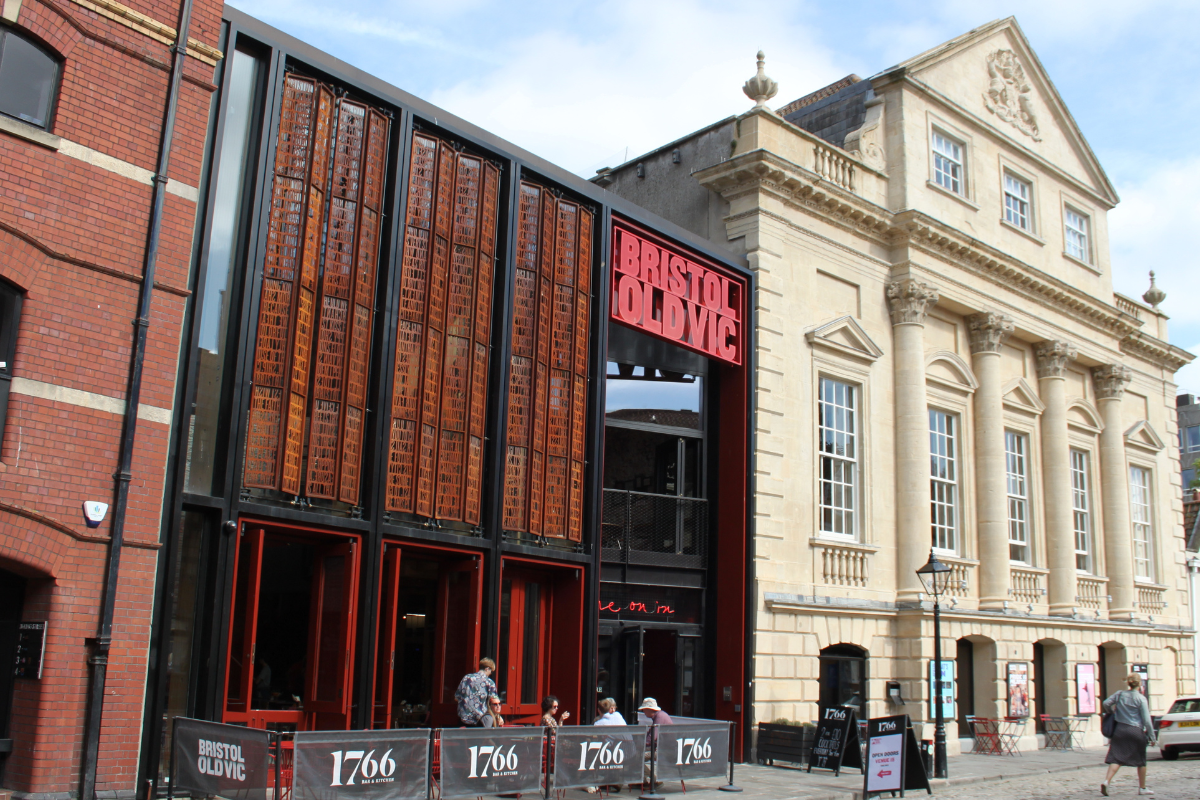
An investigation by Arts Professional and MyCake found that in 2023 NPOs were collectively in the red by £63.1m
Photo: Rodw via Wikimedia Commons
Bristol Old Vic ‘struggling to cover costs’
Historic venue is in its fourth year of losses despite ticket sales being up by one-third on last year.
Bristol Old Vic has said that rising costs and standstill funding mean that it is having to consider "curtailing" some of its activities and review the number of shows it produces.
Speaking to BBC News, Chief Executive Charlotte Geeves said that the historic venue is in its fourth year of losses despite ticket sales being up by one-third last year.
“We haven’t been able to break even over the last three years, and this year is our fourth year of going into a similar loss-making position," she said.
READ MORE:
“And that is just due to costs rising. People costs rising mostly, also energy costs rising, material costs rising. It is the same as every sector across the board.”
“This year, we are having to start to look at what activity we will be able to continue doing if we continue to make losses, and that includes shows," she added.
“Other activity that we may have to curtail will affect young people and potentially some of the work that we do with the freelance artist community outside of the shows.”
'Inflationary pressures'
The historic venue, the oldest continually operating theatre in the country, receives 19% of its income from ACE – a total of £1,250,000 – each year, but Geeves says this investment has not kept up with inflation.
Last year, the theatre also found out it was one of several major Bristol arts organisations that had been completely cut from the city council's cultural investment programme, which was mired in controversy after a year-long delay and claims of a lack of transparency.
Speaking at the re-opening of the council backed £132m Bristol Beacon concert venue last year, Deputy Mayor Craig Cheney told Arts Professional that the local authority's funding strategy was about "diversifying the arts and trying to make sure it’s not the same organisations that continue to get funded forever, that they get to stand on their own two feet, and we support new young things to come through the sausage machine, as it were".
Independent cinema and multi-arts venue Watershed also had its Bristol City Council funding axed. CEO Clare Reddington told the BBC the organisation is facing a loss year of about £100,000.
“The cost of everything is going up – the cost of electricity and gas is really hitting us. Watershed pays real living wage because it is really important to pay people fairly, and that went up 10% this year," said Reddington.
“But we can’t really put our ticket sales up because people can’t afford it. It means that we have to spend lots more time thinking about profitability, thinking about margins, thinking about where else we can get that money from."
Funding gaps
In June an investigation by Arts Professional and MyCake, a financial benchmarking company that provides insights and advice to third sector organisations, found arts organisations making up the 2023-26 National Portfolio were collectively in the red by £63.1m in 2023.
While some of the organisations broke even or made a profit last year, the number that did has shrunk at an alarming rate. Nearly one in five NPOs (18%) had expenditure levels 20% or more above their income.
An ACE spokesperson said: “The Arts Council is not in a position to fill funding gaps, but we will work closely with the council to support continued investment, and we have made it clear to our funded organisations who may be experiencing financial challenges that we will be as flexible as we can be in the way they deliver on their funding agreements with us.
“Our focus is to make the case for investment in creative professionals and cultural organisations and to identify opportunities for the sustained development of our cultural sector."
Join the Discussion
You must be logged in to post a comment.